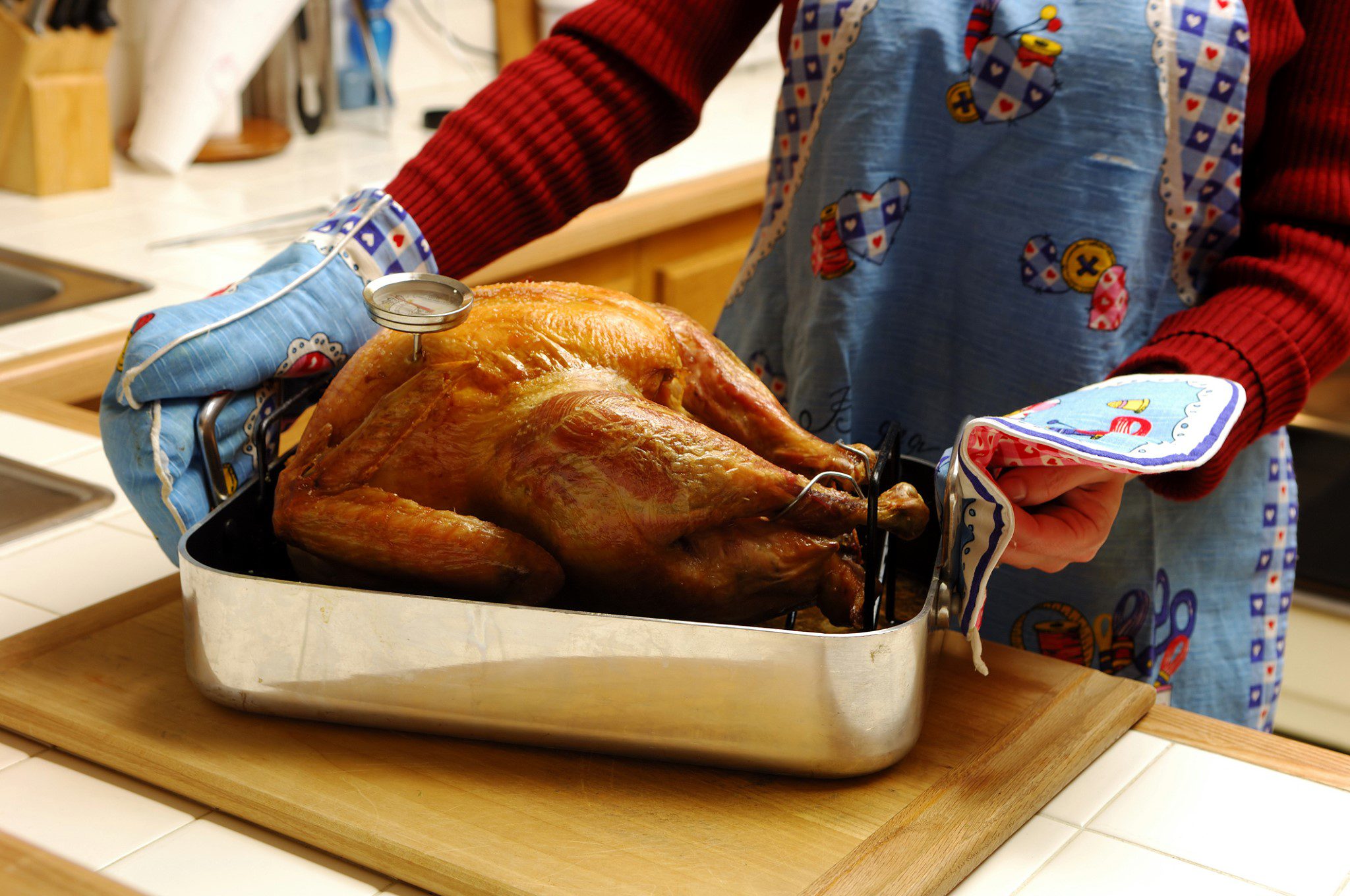The Los Angeles County Department of Public Health shared how to avoid foodborne illness, also known as food poisoning, with families celebrating during the holiday season.
Raw or undercooked meats including turkey, chicken, beef and lamb can contain bacteria such as Campylobacter, Salmonella or E. coli, that cause diarrhea and other health problems. It’s important to note that freezing does not kill these bacteria but cooking meats to the proper temperature does kill them.
When purchasing a fresh turkey, plan to cook it within 1- 2 days after purchase. The United States Department of Agriculture does not recommend purchasing retail-stuffed fresh turkey, roasters, Cornish hens or other whole stuffed poultry because of the highly perishable nature of a previously stuffed item.
To thaw a turkey:
In the Refrigerator:
– Place your frozen turkey in its original wrapper in the refrigerator (40° F or below).
– Allow approximately 24 hours of thaw time per 5 pounds of turkey.
– After thawing, keep turkey refrigerated for only 1-2 days before cooking.
In Cold Water:
– Place securely wrapped turkey in cold water and change the water every 30 minutes.
– Allow about 30 minutes defrosting time per pound of turkey.
– Cook immediately after thawing.
– Do not thaw frozen pre-stuffed turkeys before cooking.
– Do not refreeze a turkey that has been thawed.
To cook a turkey:
When roasting a whole turkey:
– Use a food thermometer to make sure it cooks to 165°F or higher.
– Insert the thermometer in the thickest part of the thigh, but not against the bone.
– For safety and uniform doneness, cook stuffing separately in a casserole dish.
For pre-cooked turkey dinners:
– Eat within 2 hours or refrigerate components separately, then reheat to a temperature of at least 165°F.
Frozen pre-stuffed turkeys:
– Cook from the frozen state by following package directions.
When deep frying a turkey:
– Remember the dangers of deep frying a turkey. Turkey fryers can easily start a fire.
– Use your turkey fryer only outdoors on a sturdy, level surface well away from things that can burn.
– Make sure to have a “3-foot kid- and pet-free zone” around your turkey fryer to protect against burn injuries.
Other food handling tips include:
– Wash your hands with warm water and soap for 20 seconds before and after handling food, especially raw food, and after using the restroom.
– Wash fresh fruits and vegetables thoroughly before eating or cutting into them.
– Separate raw meats and poultry from other foods such as fruits and vegetables. Avoid cross contamination by using separate cutting boards, knives, and platters for these foods.
– Wash cutting boards, utensils, and platters after preparing each food item.
– Bring sauces, soups, and gravies to a rolling boil when re-heating.
– Keep hot foods hot. Use chafing dishes or pans with Sternos or other heating devices, or keep foods in the oven at a temperature to ensure they remain at 135°F or above.
– Keep cold foods cold (40°F or below). Refrigerate leftovers within 2 hours. Throw out foods that should have been kept cold but have been left out for more than two hours.
– Leftovers should be used within 3 to 4 days.
– “Taste testing” food or drinks to see if they have spoiled is not recommended.
During the holidays, Public Health investigates cases of foodborne illness that are the result of undercooked food and/or poor food handling practices. Typical symptoms of foodborne illness include stomach pain, vomiting, and diarrhea, all of which can start hours or days after consuming contaminated food or drink. For healthy people, most symptoms usually go away after a few hours or days without treatment. However, foodborne illness can be severe and even life-threatening in older adults, infants and young children, pregnant women, and those with conditions that weaken their immune systems.
For more information on safe cooking, visit the USDA website at: www.usda.gov or call their toll- free Meat and Poultry Hotline at 1-888-674-6854. Food safety specialists are available, in English or Spanish, from 10:00 a.m. to 6:00 p.m. Eastern time during the week year-round. An extensive menu of recorded food safety messages may be heard 24 hours a day. For Frequently Asked Questions, visit: Avoid Foodborne Illness This Thanksgiving.
